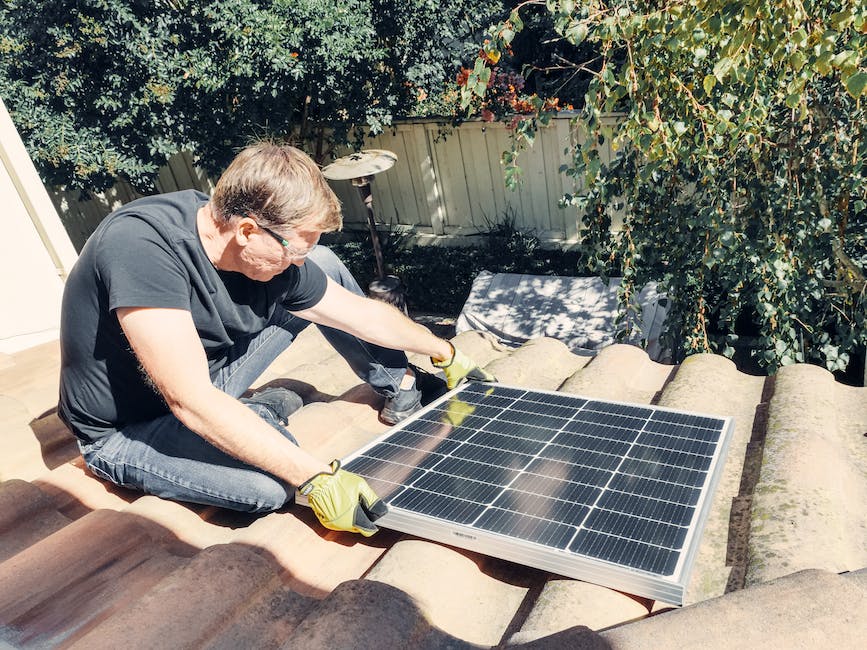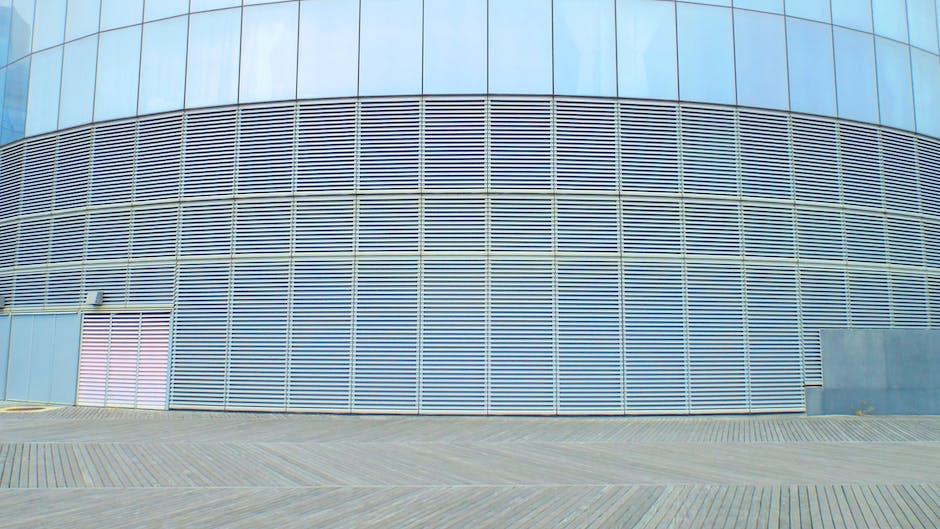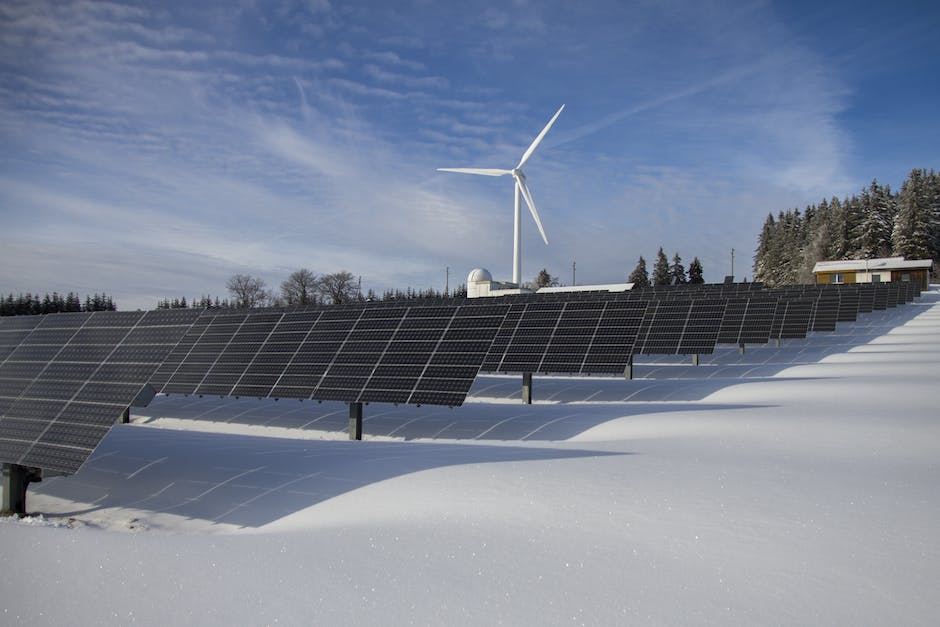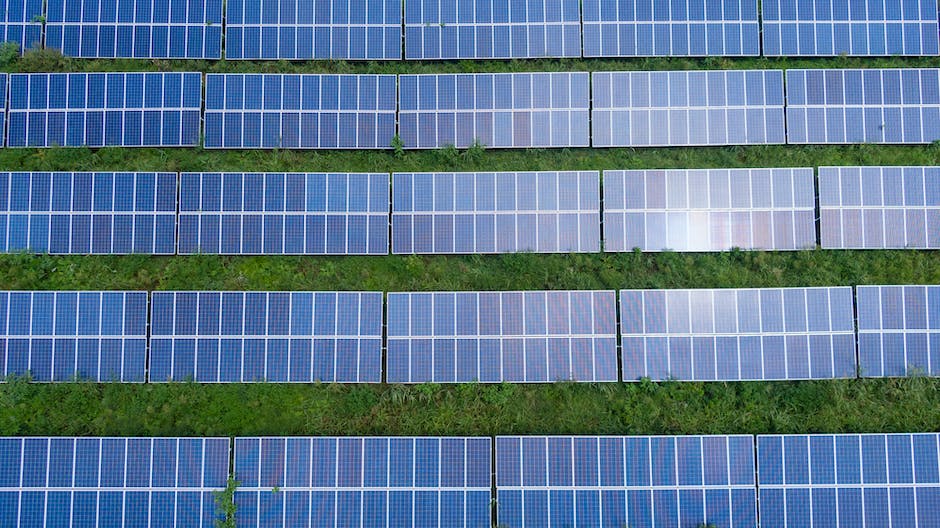As the adoption of renewable energy sources gains greater momentum across the globe, solar power stands out as a viable and sustainable choice. For property owners, such as landlords, the concept of installing solar panels presents both significant benefits and a set of pronounced challenges. As the interest and investment in solar panel installation increase, the natural question arises whether it’s fair, or even legal, to pass these costs to tenants. This essay will delve into the nuances of solar panel installation and costs, the regulations governing these expenses, the implications for both tenants and landlords, real-world case studies, and potential compromises for cost sharing.
Understanding Solar Panel Installation and Its Costs
The Basics of Solar Panels
Solar panels are devices that convert sunlight into electricity. They are typically made of photovoltaic cells, which can be either monocrystalline or polycrystalline, with the former being more efficient but also more expensive. The installation of solar panels has several benefits, including reducing energy costs and contributing to environmental sustainability. With the cost of traditional electricity sources on the rise, more and more property owners are considering the integration of solar energy into their buildings.
Associated Costs of Solar Installation
The costs associated with solar panel installation mainly fall into three categories. First, there’s the cost of the panels themselves, which can vary greatly depending on the type and quantity required. Second, there’s the cost of installation, which includes labor and any necessary modifications to the property. Finally, there’s the cost of maintenance, which can include cleaning the panels and repairing any hardware.
Although there are substantial upfront costs associated with the installation of solar panels, over time the savings on utility bills generally offset these costs. Additionally, incentives such as federal and state tax credits can further reduce the net cost of installation.
Passing Solar Costs to Tenants
The question of whether landlords can pass these costs on to their tenants depends upon several factors. From a legal perspective, this hinges on local laws and regulations. Some states in the U.S. have laws specifically addressing this issue, while in others, it is a somewhat grey area.
From a contractual perspective, the lease agreement between the landlord and tenant is key. If the lease specifically includes a provision allowing the landlord to pass on the costs of solar installation to tenants, then doing so would be permissible. Yet, if the lease does not address this issue, it could potentially lead to legal disputes.
Balancing Benefits and Costs
For tenants, the installation of solar panels can lead to significant savings on electricity bills. Consequently, landlords might argue that passing on some of the installation costs is reasonable. However, tenants may not necessarily see immediate savings, especially if the landlord chooses to recover the cost via an increase in rent.
From the landlord’s perspective, installing solar panels can increase the value and attractiveness of their property, benefiting them in the long term. However, if the cost is passed onto tenants, it may lead to higher rental costs, which could potentially deter future tenants.
Conclusion
The financial responsibilities associated with solar paneling rests heavily on the local laws applicable, the lease agreement in question, and the negotiations conducted between landlords and tenants. This complex situation demands not just a look into the immediate costs associated with installation but also the enduring benefits. For an agreeable settlement, clear communication and transparency are vital.

Laws and Regulations Surrounding Solar Panel Costs
Solar Panels: The Interplay with Tenant Laws
To properly analyze the financial implications of installing solar panels, understanding the relevant laws is the first step. Varying federal, state, and local laws regarding utility billing and solar panel costs bring layers of complexity to the situation. Solar panels, being a significant part of a property’s setup and energy supply, exist in a nebulous area of tenant laws, underlining the importance and relevance of this discussion.
Cost Pass-Through
In general, cost pass-through refers to instances when landlords pass on certain costs to tenants. Some areas allow landlords to pass through some or all of the cost of utility bills to the tenants. In most cases, for this to occur, the rental agreement or lease must explicitly allow for this cost pass-through. The landlord must provide detailed billing information and can only charge for actual usage. If solar panels are installed and significantly reduce electricity costs, landlords may be interested in passing on some or all of these reduced costs to their tenants.
Capital Improvements and Solar Panel Installation
Solar panels can be considered a capital improvement – an alteration that enhances the value of a rental property or extends its life. Landlords often bear the upfront cost of capital improvements, but it’s sometimes possible for them to recover these costs. In some cases, landlords might be able to pass on a portion of the costs of installing solar panels to their tenants through a capital improvement pass-through, but this will depend on local laws and the terms of the lease.
Green Leases and Solar Panel Costs
A ‘green lease’ is an agreement that encourages landlords and tenants to adopt sustainable practices. It may contain provisions specifying who will bear the cost of renewable energy installations, such as solar panels, and how the reduced energy bills will be divided. In this case, the landlord and tenant must negotiate these costs and incorporate their agreement into the lease.
Public Utility Commission Rules and Solar Panel Bills
In many states, the Public Utilities Commission (PUC) or a similar entity regulates utilities, including electricity. They may have rules addressing the distribution of utilities between landlords and tenants. These rules could also apply to electricity generated by solar panels. In this context, landlords must closely monitor any changes to these rules to ensure compliance.
Energy Submetering and Solar Panel Costs
Submetering is another method through which landlords might pass on solar costs to tenants. This practice involves installing separate metering devices for individual units within a property. In the context of solar energy, if a landlord has installed solar panels and submeters, they may be permitted to pass along the solar-generated electricity costs to the tenants. Submetering laws vary by state and may have specific requirements or restrictions.
Federal Solar Tax Credits and Landlords
Landlords who install solar panels on their properties can usually take advantage of federal solar tax credits. These renewable energy tax credits can help offset some of the initial installation costs and provide incentives for property owners to switch to cleaner energy sources. However, these benefits often can’t be passed directly to tenants.
The interplay of solar panel costs and their impact on tenants is a nuanced topic, greatly influenced by local jurisdictions, lease terms, and various regulations in the United States. It’s crucial for landlords and tenants alike to have a comprehensive understanding of their rights and responsibilities in this arena.

Implications for Tenants and Landlords
Economic Ramifications for Landlords and Tenants
Although the option for landlords to offset solar panel expenses onto tenants does exist, the financial ramifications of such decisions must be carefully taken into account. The installation of solar panels incorporates a sizeable initial investment, potentially driving landlords to increase rental rates to recoup this outlay. This may result in tenants shouldering elevated rents that could be substantially higher depending on the installation costs and the timeframe landlords aim to offset their expenditures.
Impact on Utility Bills
Passing on solar costs to tenants could mean higher monthly rent, but it could have effects on utility bills as well. Solar panels generate electricity from the sun, which may, in turn, reduce the need for traditional electricity from the grid. This could result in lower utility bills for the tenants, offering some degree of offset to the increased rental fees. However, the degree to which utility bills may decrease depends on various factors such as the efficiency of the solar panels and the amount of sunlight the property receives.
Potential for Energy Savings
Another aspect to take into consideration is the potential for energy savings. Solar panels can provide a significant proportion of a property’s energy needs, depending largely on the geographical location and the size of the solar energy installation. If the solar array is large and efficient enough to cover most or all of the property’s electricity needs, the tenants may end up with little to no electric bill, thereby resulting in substantial savings.
Passing on Solar Panel Costs vs. Offering a Value Proposition
While landlords may have the option to pass on solar panel costs to tenants, it may present more as a value proposition rather than merely a cost addition. Tenants could see the positive side of it in terms of lower utility bills and contributing to a greener environment. Conversely, landlords could market their property as eco-friendly, which could make it more appealing to potential tenants, helping to counterbalance the added costs.
Laws and Regulations
Before deciding to pass on solar panel costs to tenants, landlords should consider the relevant laws and regulations. In some jurisdictions, it might not be legal for landlords to hike the rent because of improvements like solar panels. Furthermore, other locations might offer incentives or subsidies for landlords to install the panels, thereby reducing the overall costs that need to be recovered. Therefore, it is crucial for landlords to thoroughly understand and comply with all applicable laws and regulations before making their decision.
Tenant Perspectives on Solar Power Installation
The tenant’s perspective is a crucial consideration for landlords when incorporating solar power systems into their rental properties. While some tenants may see the sustainability and long-term cost benefits of solar energy and be open to a minor rent increase, others may question the value they get for the extra cost. Consequently, it becomes essential for landlords to communicate openly with their tenants, explaining any potential rise in rent due to the installation of solar panels.

Case Studies and Real-life Scenarios
Overcoming Solar Panel Installation Cost Problems
Charged with the scenario of John, a middle-aged landlord who owns a small apartment complex, the implications of solar energy investment are clear. Keen on promoting sustainable living and decreasing utility costs, John decided to install solar panels on his property’s roof, which turned out to be a significant investment. To recover some of this cost, John contemplated raising the rent, leading to a wave of dissatisfaction among his tenants.
Tenants Response
The first reaction from the tenants, understandably, was frustration and worry. After all, the installation of solar panels was not a decision they partook in. Furthermore, many were on a tight monthly budget, and an additional expense concerned them. A tenant named Emily, a single mother of two, raised her concerns. She asked who would benefit from the solar panels if tenants were sharing the installation cost? If the landlords, then it seemed unfair.
Addressing the Dilemma
John, trying to be a considerate landlord, attempted to negotiate with his tenants. First, he provided clear evidence that the rent increase was a fraction of the cost of the solar panels. Second, he emphasized that the solar panels led to significant reductions in the building’s utility costs, which the tenants paid. Lower electricity bills meant they could potentially save money in the long run.
Legalities and Compromise
Despite these explanations, many tenants raised valid points about the legal aspect. To answer their queries, John did some research and consulted a lawyer. According to tenant law in most American states, a landlord cannot enforce a cost upon the tenants without proper adjustments or services in response to the added costs. Additionally, the landlord usually needs to address any rent increase with proper notification, according to most rental or lease agreements.
Conclusion
The issue at hand required a level-headed and considered approach from all parties involved. It was imperative for the landlord to balance recouping their costs while maintaining a positive relationship with the tenants. Some tenants welcomed the use of solar energy, understanding its long-term impacts and appreciating the fairness of John’s proposition, so they agreed to the increase in rent. Others, however, found the raised rent unacceptable and chose to end their leases, indicating the necessity for better communication, transparency, and mutual agreement in such circumstances.

Exploring Alternatives for Cost Sharing
Interpreting the Legitimacy of Transferring Solar Panel Costs to Tenants by Landlords
As the global populace grows increasingly conscious of the environment, the sight of solar panels in residential areas is becoming more common. These panels are a superb method for the generation of renewable energy and moreover, they lower utility bills significantly. Despite these benefits, their initial high cost leads to a debatable question for landlords: Is it permissible to transfer these costs to the tenants?
In a considerable number of states within the United States, the landlord does have the right to delegate some or the entire cost of the solar panels onto the tenants. However, the consideration of various other factors like the specific state laws, the lease agreement, and the direct benefits received by the tenants due to the solar panels, also play a significant role in this process.
Rent Increase
One way for landlords to recoup solar panel costs is through an increase in monthly rent. This approach spreads the expense over time, and it also enables tenants to enjoy the benefits of solar power without a large upfront cost. While this may sound advantageous, landlords must be cautious of tenant protection laws that may limit rental increases in certain areas or situations.
Shared Savings Agreement
An alternative to incorporating costs into rent, a shared savings agreement, allows tenants to enjoy the benefits of solar power while helping the landlord pay off the investment. Essentially, the landlord and tenants agree that a certain percentage of the energy bill savings resulting from the solar panels will go towards paying for the installation costs. This method ensures that both parties enjoy the monetary benefits of the investment.
Solar Lease
The solar lease is another viable option. It works by having the tenant pay a fixed monthly fee to the solar company in return for using the solar energy. This lease payment usually replaces their conventional energy bill.
Navigate State Laws
Each state has different laws relating to renewable energy installations and landlord-tenant rights. Understanding these laws is crucial before any decisions are made about solar panel installations and cost-sharing. Some states may prohibit landlords from passing on these costs, while others may offer incentives or tax breaks to landlords who install renewable energy solutions.
Therefore, landlords and tenants should consult real estate experts or legal professionals to understand their state’s laws and how they impact the decision to install solar panels.
In the end, the adoption of solar panels can be beneficial for both landlords and tenants, provided they establish a fair and mutually acceptable agreement regarding the solar panel costs.

Photo by charlesdeluvio on Unsplash
Unveiling the complexities around passing solar panel costs to tenants has highlighted the delicate balancing act landlords and tenants face in transitioning to renewable energy. Legislation, tenant contracts, monetary implications, and real-world examples all contribute to a multi-faceted issue. While some landlords may wish to incorporate these costs into rental prices, others may explore shared savings plans as an effective compromise. The path forward requires communication, understanding, and careful navigation to benefit the environment without causing financial distress. This discussion provides a comprehensive view of the present circumstances and offers a launching pad for future laws, alternatives, and efforts to blend renewable energy sources with housing market dynamics.
